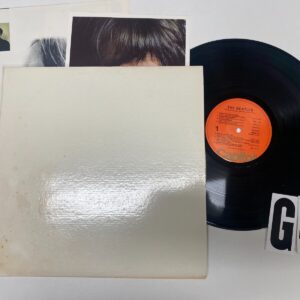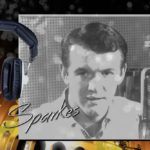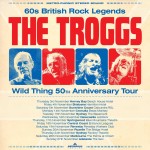Is Bill Cowsill One Of The Most Underrated Artists Ever?
If you grew up during the 1960s, you would have heard at least one song by Bill Cowsill and his siblings, who were collectively known as The Cowsills.
The Cowsills are an American singing group made up of siblings from Newport, Rhode Island. Their group was formed in the 1960s while their father, William Cowsill, was stationed in Ohio as part of his work as a US Navy recruiter.
Best known for their harmonious pop hits and as a prototype for family bands, they gained fame with songs like ‘The rain, the park & other things’, ‘Hair’ and ‘Indian lake’. Their rich blend of lush harmonies and catchy, upbeat melodies caught the public’s attention during the late ‘60s and early ‘70s.
Who are the Cowsills?
The original members were siblings Bill, Bob and Barry, and they were later joined by younger siblings John, Susan and Paul Cowsill. Their mother, Barbara, eventually joined the group as well. Their antics as a family of performers inspired the television show The Partridge Family, a show that became popular during the era in its own right.
Though the group presented a picture-perfect depiction of a family navigating the heights of fame, personal differences and difficulties would eventually lead to changes in the group’s lineup over the decades. Notably, Bill’s father expelled him from the group following a disagreement over his close friendships, which resulted in the Cowsill patriarch’s arrest for assault in 1970.
Despite these changes, The Cowsills nonetheless left a lasting mark on the genre of family-based pop records and remain a popular name among enthusiasts of ‘60s music, serving as a wholesome counterpoint to more mature performers like Bobby Darin or Frankie Valli and The Four Seasons.
Getting to know Bill Cowsill
The Cowsills might not be as famous as The Beatles or The Rolling Stones, but this family band stood out with their tight harmonies and pop-folk tunes, bringing their family bond directly into the spotlight in ways that were fresh to the music scene at the time. Along with their contemporaries, The Jackson Five and The Carpenters, the group set the bar for other bands to celebrate family relationships through music and performance.
The siblings went separate ways as performers in the ‘70s and continued to impress as solo artists. Bill, for his part, would move to Canada to explore his musical passions, forming two new bands, Blue Northern and The Blue Shadows, during his career in the country. Both bands would see success throughout the years, with Blue Northern being nominated for a Canadian Country Music Award in 1982 and The Blue Shadows gaining a Juno Award nomination in 1994.
Life as a solo performer
Bill didn’t slack on his solo endeavours, either, as he explored more personal and introspective themes in his music. His solo work saw him dive further into country and folk genres, with his solo albums like ‘Nervous Breakthrough’ receiving critical praise for their heartfelt lyrics and compelling melodies. His music often reflected his own life experiences, giving fans a glimpse into his personal struggles and triumphs.
Bill’s live solo performances were intimate affairs. Whether he was playing in small clubs or larger venues, he sought to connect deeply with his audience, always making the effort to speak directly to everyone in attendance, including the staff of the venues he performed in.
Bill’s struggles with fame
Fame is a demanding mistress, as some might say, and Bill Cowsill’s own journey through the entertainment industry was anything but smooth. He had gruelling tour schedules under the intense spotlight of fame, and he also struggled with substance abuse and significant personal losses over the years.
His dismissal from the group was also a rough period for him, both professionally and personally. In 1969, he was forced out of the band by his father after a disagreement about Bill’s association with guitarist Waddy Wachtel, whom his father disapproved of. This family conflict was a significant blow to him; he was forced to move away from his family as a result of his dismissal from the group.
Later, when he tried to establish a solo career, his debut album in 1971 didn’t achieve commercial success the way The Cowsills had, and he struggled to find his place in the music industry outside of his family band.
Bill also faced severe health problems later in life, including emphysema, Cushing’s syndrome and osteoporosis, which greatly affected his mobility and required him to undergo multiple surgeries through the years. Despite his health issues, however, he continued to write, perform and record music.
Bill passed away at his home in Calgary, Canada, on February 18, 2006. He was 58. The family learned of his death during the memorial service for another Cowsill brother, Barry, who had disappeared during and was later found in the aftermath of Hurricane Katrina.
Though no official cause of death was reported, longtime producer and lifelong friend Neil MacGonigil mentioned that the guitarist and singer had been struggling with several health issues at the time of his passing. At the time of his death, his last release was a top-selling independent record in Canada, showing that he remained dedicated to his music until the end.
Learn more about Bill Cowsill at Jukebox Saturday Night
For fans looking to delve deeper into the life and music of Bill Cowsill, ‘Jukebox Saturday Night’ is dedicated to celebrating the golden era of music. Tune in and you could find yourself deep in a special segment on the musician and his contributions to music. Whether you’re a longtime fan or just discovering his work, you’re in for a good hour of music deep-dives with our show.
So if you’re curious about the tales around the web linking iconic figures such as Johnnie Ray, Bill Cowsill and the man who invented the moonwalk, then strap in and tune in to Jukebox Saturday Night.
Jukebox Saturday Night is your gateway to the golden era of rock and pop music, showcasing never-before-aired performance videos and bringing music fans together to relive and enjoy timeless classics.




